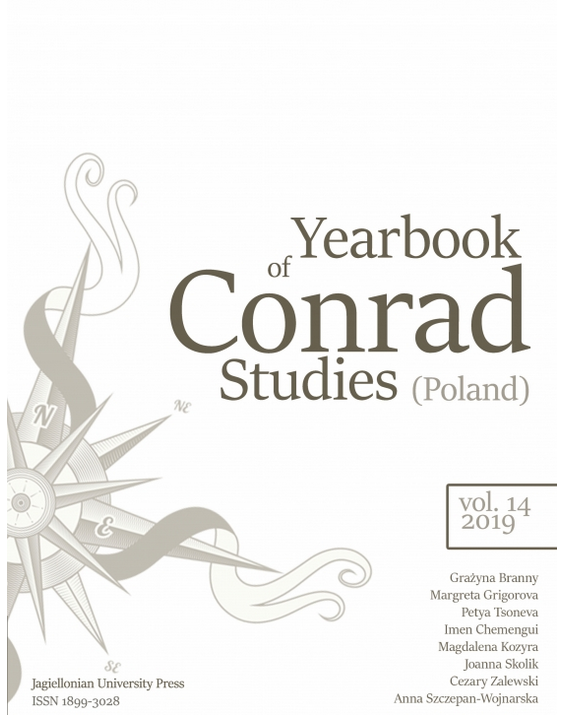“UNFATHOMABLE CALMNESS”: BETRAYAL TRAUMA, SILENCE AND DISSOCIATION IN THE SECRET AGENT
“UNFATHOMABLE CALMNESS”: BETRAYAL TRAUMA, SILENCE AND DISSOCIATION IN THE SECRET AGENT
Author(s): Imen ChemenguiSubject(s): Polish Literature, Cognitive Psychology, Personality Psychology, Psychology of Self, Studies in violence and power, Theory of Literature, British Literature
Published by: Wydawnictwo Uniwersytetu Jagiellońskiego
Keywords: betrayal trauma; dissociation; violence; The Secret Agent; Conrad;
Summary/Abstract: With the rise of trauma theory in late 19th century, researchers have focused on foregrounding the significance of some catastrophic events that pertain mainly to the collective, leaving other forms of trauma and their psychological aftermath on the individual underrepresented. In this paper, I focus on social traumas in Joseph Conrad’s The Secret Agent, which seems to be overlooked by some critics whose insights highlight primarily its political aspect. The events of the novel revolve around the peculiar and traumatic experience of Winnie Verloc whose life is rife with betrayal and violence. Her recurrent exposure to successive shocking events culminates in her dissociation and, consequently, her suicide. To pin down what lies beneath Winnie’s ambiguity, aloofness and silence in the novel, I mainly rely on trauma theory, drawing from studies on PTSD, betrayal and dissociation by several trauma scholars, such as, Cathy Caruth, Shoshana Felman, Jennifer Freyd, and others. Furthermore, this paper examines the inextricability of the past from the present in trauma through the breadth scrutiny of Winnie’s psychological response to her excruciating experience. Hence the way the appalling past returns unbidden to shake Winnie’s present.
Journal: Yearbook of Conrad Studies (Poland)
- Issue Year: 2019
- Issue No: XIV
- Page Range: 61-81
- Page Count: 21
- Language: English

